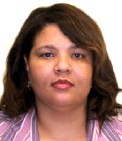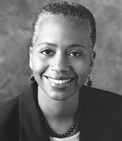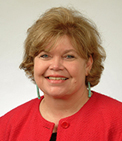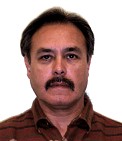INVITED SPEAKERS
"Healing the Generations"
by Rose Clark, Ph.D. (Navajo)
Behavioral Health Consultant, Indian Health Service California Area Office
 Healing the generations encompasses recognizing and valuing our identity, culture, and traditions. This includes being aware of how colonization has impacted and continues to impact Native people. For some of us, the healing is to maintain and teach our culture and traditions while for others it is reconnecting with these traditions. Healing the generations takes many forms today including those that are survivors, those breaking the cycle of abuse, and those combating violence, mental illness, and substance abuse.
Healing the generations encompasses recognizing and valuing our identity, culture, and traditions. This includes being aware of how colonization has impacted and continues to impact Native people. For some of us, the healing is to maintain and teach our culture and traditions while for others it is reconnecting with these traditions. Healing the generations takes many forms today including those that are survivors, those breaking the cycle of abuse, and those combating violence, mental illness, and substance abuse.
Dr. Clark is a member of the Navajo Nation and was born and raised in Albuquerque, New Mexico. She received her Bachelor of Arts degree in Psychology with a minor in Alcohol and Drug Studies from Loyola Marymount University in Los Angeles and her Ph.D. in clinical psychology with an emphasis in multicultural community clinical issues from the California School of Professional Psychology in Los Angeles in June 1998. She is a licensed psychologist and the Behavioral Health Consultant for the California Area Indian Health Service. Dr. Clark sits on numerous boards advocating on behalf of American Indian issues including the Indian Health Service National Suicide Prevention Committee, the Indian Health Service Youth Regional Treatment Center Network Task Force (YRTC), the California Rural Indian Health Board Access to Recovery Steering Committee, and the Steering Committee for the American Indian/Alaska Native National Resource Center for Substance Abuse Services. She was the recipient of the American Psychological Association Early Career Award in the Public Interest in 2006.
"Service Delivery Issues in Urban Indian Communities"
by Monique Smith, Psy.D. (Choctaw)
Administrative Clinical Director, United American Indian Involvement
 This presentation will address mental health service delivery needs for American Indians/Alaska Natives (AIANs) residing in urban areas. Specific barriers that urban AIANs encounter when seeking out mental health services in Los Angeles County and other urban areas will also be addressed. The presenter will discuss the necessity of combining culturally specific interventions with Western practices in order to provide appropriate mental health services to AIANs. Current statistics on mental health disparities in the American Indian community will also be highlighted in this presentation.
This presentation will address mental health service delivery needs for American Indians/Alaska Natives (AIANs) residing in urban areas. Specific barriers that urban AIANs encounter when seeking out mental health services in Los Angeles County and other urban areas will also be addressed. The presenter will discuss the necessity of combining culturally specific interventions with Western practices in order to provide appropriate mental health services to AIANs. Current statistics on mental health disparities in the American Indian community will also be highlighted in this presentation.
Dr. Monique Smith (Choctaw) has a Psy.D. in clinical psychology. She was the first American Indian to graduate with a doctorate degree from Pacific University's School of Professional Psychology in Forest Grove, OR. Dr. Smith has an extensive background as a therapist working with American Indian children and adults. She has experience in assessment, evaluation, and crisis intervention in urban and rural American Indian communities. Dr. Smith has conducted research in her interest area, the utilization of mental health services among urban American Indians. She is currently the Administrative Clinical Director of United American Indian Involvement, Inc. Robert Sundance Family Wellness Center and Director of the Ah-No-Ven (healing) Home, a youth residential treatment facility for adolescent American Indian girls ages 14-17.
"Cultural Countertransference: Acknowledging and Confronting Stereotypes"
by Kumea Shorter-Gooden, Ph.D.
Professor, Multicultural Community-Clinical Psychology Emphasis Area,
California School of Professional Psychology

The aim of this presentation is: (1) to sensitize instructors to the importance of a focus on their students' cultural countertransference to American Indians, and (2) to offer concrete classroom and course strategies for unearthing and addressing stereotypes. The rationale is that in order for learners to effectively take in new knowledge and learn culturally responsive skills in working with American Indians, it's important that they first focus on self-awareness. Examining assumptions, biases, and prejudices about the population and exploring the genesis of these ideas and images can help students to minimize the negative impact of their beliefs and attitudes and to be more available to take in new culturally appropriate information. There will be a brief demonstration of an in-class exercise and a description of various alternative strategies.
Dr. Kumea Shorter-Gooden is a Professor of the Multicultural Community/Clinical Psychology Emphasis Area at the California School of Professional Psychology (CSPP) at Alliant International University, Los Angeles. Prior to joining CSPP, Dr. Shorter-Gooden served as the director of the Monsour Counseling Center at The Claremont Colleges and Clinical Director of the Community Mental Health Council in Chicago. She is the co-author with Charisse Jones of Shifting: The Double Lives of Black Women in America (HarperCollins, September 2003, www.BlackWomenShifting.com), a winner of the 2004 American Book Awards. Dr. Shorter-Gooden has written numerous published articles and chapters on topics such as African American women and identity, psychotherapy with African Americans, and cultural diversity, and she is a Consulting Editor for Professional Psychology: Research and Practice. A Licensed Psychologist based in Pasadena, California, she has a private psychotherapy and organizational consultation practice, and is an active speaker and workshop leader around issues related to African American mental health, women's issues, and multiculturalism and diversity.
"Talking Circles: Using Storytelling as an Adjunct to Dialogue"
by Felicia Schanche Hodge, Dr.PH (Wailaki)
Director, UCLA Center on American Indian & Indigenous Research and Education
 This presentation describes the results of several research projects designed to incorporate the use of storytelling as a communication tool and as a data collection tool. Focus group discussions explored the culturally embedded meanings of chronic illnesses and their symptoms (e.g. pain, fatigue, depression), their conceptualization, cultural construct(s) and the pattern and strategies of their disclosure by American Indians. An explanatory model has been formed to analyze patient perceptions of etiology, how these patients sought treatment, and how they managed their adverse symptoms.
This presentation describes the results of several research projects designed to incorporate the use of storytelling as a communication tool and as a data collection tool. Focus group discussions explored the culturally embedded meanings of chronic illnesses and their symptoms (e.g. pain, fatigue, depression), their conceptualization, cultural construct(s) and the pattern and strategies of their disclosure by American Indians. An explanatory model has been formed to analyze patient perceptions of etiology, how these patients sought treatment, and how they managed their adverse symptoms.
Felicia Schanche Hodge, Dr.P.H., is currently a Professor in the UCLA School of Nursing and the School of Public Health. She is also the Chair of American Indian Studies at UCLA. With over 30 years of experience in Native health care research, her area of expertise is intervention design and implementation to reduce chronic health problems in Native populations. Several of Dr. Hodge's studies designed culturally appropriate educational materials and tested the "Talking Circle" group support approach to education. These culturally appropriate educational materials were designed to provide accurate information on diabetes, nutrition, cancer and the importance of exercise in a group support model of education. Dr. Hodge is the founder and director of the Center for American Indian & Indigenous Research and Education (CAIIRE). CAIIRE's priorities are: 1) the identification of barriers impeding optimal health care utilization, 2) the development and testing of culturally sensitive health and social service intervention models, and 3) the recruitment and retention of Native students into institutions of higher learning.
"Dual Diagnosis and Urban Indians"
by Alfonso Garcia, MSW (Yaqui)
Domestic Violence Prevention Project Coordinator, United American Indian Involvement

Similar to the general population, there are a number of American Indian clients in substance abuse treatment who are dual-diagnosed with co-occurring disorders. This workshop will examine some of the common Axis I and II diagnosis prevalent within the client base at the Robert Sundance Family Wellness Center of United American Indian Involvement, Inc. Workshop participants will be presented with the concepts of acculturation, assessment and treatment planning among American Indian clientele. Information will include a best-practice approach of integrating Western therapeutic methods of treatment along with a cultural component that incorporates a traditional/holistic model for treatment. Information will also include motivational interviewing techniques for American Indians along with the transtheoretical model of behavior change, collaboration with outside service providers for treatment planning and interventions, and resource/networking within Los Angeles County or among tribal organizations.
Mr. Garcia is a Yaqui Indian descendant, born and raised in Los Angeles, CA. He received a Masters in Social Work from California State University, Los Angeles with an emphasis in urban generalist practice. Mr. Garcia has worked extensively with urban American Indian children and families during the past 13 years, and is currently a staff member at United American Indian Involvement, Inc. in Los Angeles, providing mental health/substance abuse counseling and domestic violence prevention services. His area of specialization is in providing culturally competent psychosocial assessment and treatment of urban American Indian clients. Mr. Garcia's professional experience also includes Indian Child Welfare issues and working with American Indian families involved with the Dependency Court system. Previously, he developed a prevention program titled "Walking In a New Direction" (WIND) to enhance awareness about the need to have healthy/positive men in their families and communities. His objectives have been to enhance positive values, characteristics and role modeling among men as husbands, fathers, and intimate partners, for the purpose of being influential members of their families and communities.
"Integrating Traditional Medicine Practices
into Western Mental Health Practices"
by Glenda Ahhaitty (Cherokee)
Acting Director, American Indian Counseling Center
The presentation will focus on the importance of membership in the family, community, and the world as it relates to mental health of the individual. There will be a American Indian component used as a frame of reference to explore traditional values and what happens to the individual when these value systems are lost or disrupted. In addition, we will examine the cross-cultural limitations of western healthcare and offer a comparison of western and American Indian medicine in an effort to raise the awareness of mental health workers, counselors, therapists, and practitioners when dealing with cross-cultural clinical situations. Finally, we will share our experience and the impact of American Indian traditional spirituality in approaches to stress, coping, and social support as it relates to mental health and substance abuse.
Ms. Ahhaitty is an enrolled member of the Cherokee Nation of Oklahoma and is originally from Copan, Oklahoma. She has lived in the Southern California area since 1954 and has worked in many capacities, including executive director of the Los Angeles City/County American Indian Commission, DMH volunteer services, and coordinator for DMH hearing impaired clients interpreter service. Together with her family she has been an active member of the Indian community in Southern California and in her family's home communities in Oklahoma. She has had the honor of working in leadership positions on behalf of American Indian women and served from more than ten years as an appointee of the Secretary of Commerce as a member of US Census Advisory Committee on the American Indian population.
At present, Ms. Ahhaitty is the Acting Director of the American Indian Counseling Center. The Center is a directly operated clinic of the Los Angeles County Department of Mental Health providing culturally sensitive mental health services to American Indian elders, adults, children and families. Services include individual and couple therapy, child and adolescent therapy, family therapy, parenting education groups, dual diagnosis treatments, crisis intervention, case management, community outreach and education, professional trainings and internships.
"The Multigenerational Trauma Cycle and Its Impact on the Mental Health of American Indian Children and Youth"
by Carrie L. Johnson, Ph.D. (Dakota Sioux)
Director, Seven Generation Child and Family Counseling Services
United American Indian Involvement
&
by Rose L. Clark, Ph.D. (Navajo)
Behavioral Health Consultant, Indian Health Service California Area Office
This workshop will provide a general overview of the cultural, social and historical factors that have had and continue to have a significant impact on the lives of American Indians and Alaska Natives (AI/ANs). It is imperative to understand and comprehend the sociohistorical context of AI/ANs in order to facilitate positive change and healing that will be passed on from generation to generation.
This workshop will address issues related to the phenomena of the Multigenerational Trauma Cycle among American Indian children, youth and families and how it impacts the mental health among American Indians. It is designed to provide practical information and clinical guidelines/skills that will assist in the provision of culturally sensitive mental health assessment and treatment services to American Indians. An American Indian Healing model will be examined which incorporates contemporary practices with American Indian traditions and culture. The model will also focus on a system of care when working with American Indian children and youth.
Carrie L. Johnson received her Ph.D. in clinical Psychology with an emphasis in Multicultural and Community Psychology from the California School of Professional Psychology, Los Angeles. Dr. Johnson is a licensed clinical psychologist and the director of United American Indian Involvement's, Seven Generation Child and Family Counseling Services as well as the System of Care project. Dr. Johnson also provides consultation, training and workshops to American Indian programs and communities on a Community and Family Healing Model she has developed. She is involved in administration, program development, research, and direct services for the American Indian community.
 Healing the generations encompasses recognizing and valuing our identity, culture, and traditions. This includes being aware of how colonization has impacted and continues to impact Native people. For some of us, the healing is to maintain and teach our culture and traditions while for others it is reconnecting with these traditions. Healing the generations takes many forms today including those that are survivors, those breaking the cycle of abuse, and those combating violence, mental illness, and substance abuse.
Healing the generations encompasses recognizing and valuing our identity, culture, and traditions. This includes being aware of how colonization has impacted and continues to impact Native people. For some of us, the healing is to maintain and teach our culture and traditions while for others it is reconnecting with these traditions. Healing the generations takes many forms today including those that are survivors, those breaking the cycle of abuse, and those combating violence, mental illness, and substance abuse. This presentation will address mental health service delivery needs for American Indians/Alaska Natives (AIANs) residing in urban areas. Specific barriers that urban AIANs encounter when seeking out mental health services in Los Angeles County and other urban areas will also be addressed. The presenter will discuss the necessity of combining culturally specific interventions with Western practices in order to provide appropriate mental health services to AIANs. Current statistics on mental health disparities in the American Indian community will also be highlighted in this presentation.
This presentation will address mental health service delivery needs for American Indians/Alaska Natives (AIANs) residing in urban areas. Specific barriers that urban AIANs encounter when seeking out mental health services in Los Angeles County and other urban areas will also be addressed. The presenter will discuss the necessity of combining culturally specific interventions with Western practices in order to provide appropriate mental health services to AIANs. Current statistics on mental health disparities in the American Indian community will also be highlighted in this presentation.
 This presentation describes the results of several research projects designed to incorporate the use of storytelling as a communication tool and as a data collection tool. Focus group discussions explored the culturally embedded meanings of chronic illnesses and their symptoms (e.g. pain, fatigue, depression), their conceptualization, cultural construct(s) and the pattern and strategies of their disclosure by American Indians. An explanatory model has been formed to analyze patient perceptions of etiology, how these patients sought treatment, and how they managed their adverse symptoms.
This presentation describes the results of several research projects designed to incorporate the use of storytelling as a communication tool and as a data collection tool. Focus group discussions explored the culturally embedded meanings of chronic illnesses and their symptoms (e.g. pain, fatigue, depression), their conceptualization, cultural construct(s) and the pattern and strategies of their disclosure by American Indians. An explanatory model has been formed to analyze patient perceptions of etiology, how these patients sought treatment, and how they managed their adverse symptoms.
